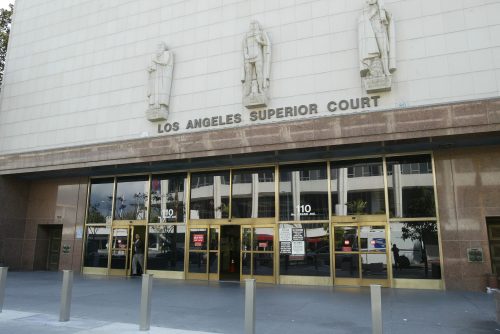
LOS ANGELES, CA – Defense attorney George Workman Buehler filed a motion for a retrial here in Los Angeles County Superior Court late last week, citing the “incompetence” of the accused’s previous counsel.
The judge rejected the motion after a lengthy discussion in court, and sentenced the accused.
Buehler ridiculed the former attorneys for failing to address the credibility issues surrounding the victim’s testimony and neglecting to argue the accused’s intent when found near the victim. He described the earlier defense as blatantly negligent in presenting a proper case.
The defense claimed the accused and his girlfriend filed restraining orders against one another following a “messy break-up,” and have since been at odds with each other including a previous interaction in Las Vegas where the alleged victim blamed the accused for stalking her.
The defense argued this incident was an attempt to sabotage the accused as he and his defense team had arrived in Las Vegas a few days prior for a business meeting involving the Superbowl.
Thursday’s case however concerns a particular incident in which the accused was found in violation of his restraining order, said defense attorney Buehler, and acknowledged the presence of his client at the scene. But counsel noted the accused’s previous defense counsel never chose to question the accused’s intent during testimonies.
Buehler emphasized that his client did not make any gestures or threats towards his ex-girlfriend during his time there. Furthermore, upon realizing that his proximity to his ex-girlfriend would lead to a violation of his restraining order he immediately left, another point the previous defense attorney neglected to argue.
Deputy District Attorney Stanley Phillip Williams argued that typically cases of this matter rely heavily on testimony, but insisted there is concrete evidence, including surveillance video and photos of the accused walking back and forth near a restaurant where his ex-girlfriend was having dinner.
DDA Williams added there were several alternative routes that the accused could’ve taken to avoid his ex-girlfriend in this scenario but he chose to not take them.
And Williams noted the accused soon began following the event posted on social media, talking about his encounter with his ex-girlfriend. DDA William said this post is also considered a violation of the accused’s restraining order.
Defense attorney Buehler argued the accused’s erratic walking pattern was likely a result of uncertainty over whether his ex-girlfriend was still present at the restaurant after initially spotting her.
He added his client’s social media posts about the incident were directed toward his audience and friends, rather than the ex-girlfriend.
Buehler also condemned the previous defense counsel’s failure to challenge the ex-girlfriend’s credibility during cross-examination, revealing, prior to the trial, the ex-girlfriend allegedly demanded $1 million from the accused in exchange for not testifying—an offer the accused rejected.
Judge Alexander Gza ultimately decided that the accused’s previous counsel crafted a reasonably competent case for their client and said that in order for a retrial to occur the defense must prove that performance fell below an objective standard of reasonableness and also demonstrate that these errors affected the outcome of the case.
Judge Gza pointed out the previous defense team would have interpreted the ex-girlfriend’s financial request as an attempt to settle the case. He further found it reasonable that the defense team chose to not cross-examine the other witness to argue the accused’s guiltless intent due to the witness’s close relationship with the accused.
The accused was sentenced to 36 months of summary probation, and 100 hours of community service. Judge Gza further required the accused to attend a 52-week domestic violence program and imposed a 10-year criminal protective order.
Judge Gza declined the prosecution’s recommendation of 90 days of county jail, citing the accused’s apologetic nature and punctuality in court.